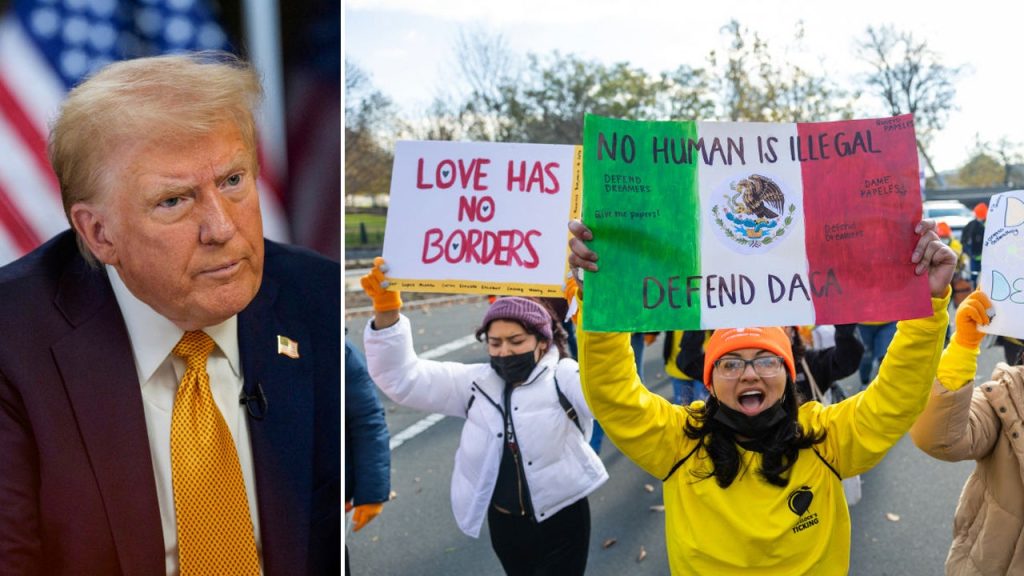Donald Trump’s recent statements regarding “Dreamers,” undocumented immigrants brought to the United States as children, signal a potential shift in his immigration stance, echoing similar overtures made in 2019. During an interview, Trump expressed a willingness to collaborate with Democrats on a plan to address the situation of Dreamers, acknowledging their long-term presence in the country, many of whom are now adults with established lives and careers. This apparent openness to finding a solution contrasts with his administration’s previous efforts to terminate the Deferred Action for Childhood Arrivals (DACA) program, an Obama-era initiative that provided temporary protection from deportation and work permits to eligible individuals.
Trump’s stated desire to “work something out” for Dreamers marks a departure from his hardline immigration rhetoric and policies that characterized his first term. While emphasizing the need to address the issue, he acknowledged the contributions of Dreamers to the American economy, highlighting their professional achievements and entrepreneurial endeavors. This recognition of their integration into society suggests a potential softening of his stance and a willingness to consider pathways to legal status, a departure from his previous focus on mass deportations.
The evolution of Trump’s position on Dreamers is particularly noteworthy given his administration’s persistent legal challenges to DACA. Despite the Supreme Court blocking the administration’s attempt to end the program, the legal battle continues in the Fifth Circuit Court of Appeals. Trump’s current pronouncements, however, indicate a potential willingness to negotiate a legislative solution, a stark contrast to his previous demands for border wall funding in exchange for DACA extensions, a proposal rejected by Democrats as “hostage taking.”
While expressing a desire to work with Democrats, Trump also placed the onus on them for past difficulties in reaching a bipartisan agreement on immigration reform. He asserted Republicans’ openness to addressing the Dreamer issue, suggesting a potential avenue for bipartisan collaboration in the upcoming Congress. This renewed emphasis on negotiation and compromise represents a departure from the often-polarized political climate surrounding immigration policy.
However, immigration advocates remain skeptical of Trump’s pronouncements, citing his past actions and rhetoric as evidence of his true intentions. They point to his administration’s aggressive immigration enforcement policies, including family separations and mass deportations, as reasons to doubt his sincerity. These advocates demand concrete actions, such as urging his allies to drop the lawsuit against DACA and halting his planned mass deportation campaign, as proof of his commitment to finding a just and humane solution for Dreamers.
The future of DACA recipients and other Dreamers remains uncertain, hanging in the balance of political negotiations and ongoing legal challenges. While Trump’s expressed willingness to work with Democrats offers a glimmer of hope for a legislative solution, his past actions and the deep-seated partisan divisions surrounding immigration policy cast a long shadow over the prospects for a comprehensive and lasting resolution. The upcoming political landscape will undoubtedly play a crucial role in determining the fate of Dreamers and the broader direction of immigration policy in the United States. Whether Trump’s recent statements represent a genuine shift in his stance or merely a political maneuver remains to be seen.


